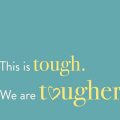“A mother’s love is the fuel that enables a normal human being to do the impossible”
– Marion C. Garretty
Mother is probably the strongest word I know. With a single word, you will imagine all the emotions, all the feelings which any other word cannot. It is interesting that we use so many fancy adjectives for a mother. Well, in all this, we probably forget that a mother is a person herself. She has a life, an individuality, and her own emotions.
Postnatal depression is the one suffered by a mother following childbirth, typically arising from the combination of hormonal changes, psychological adjustment to motherhood, and fatigue. According to a study of the US, 1 out of 7 new mothers experiences it within one year of childbirth. Still, people consider it to be taboo and are afraid to express it. We have an inspiration, who not only globally accepted her postnatal depression, but also shared her story of struggle – Serena Williams. Williams is an American professional tennis player, the former World No. 1 in women’s singles tennis. She has won 23 Grand Slam singles titles.
Williams recently gave birth to a daughter. She recently opened up on her postnatal depression after the most stunning losses of her career, followed by her withdrawal from one of tennis’s biggest tournaments.
In her Instagram post, she wrote, “Mostly, I felt like I was not a good mom. I read several articles that said postpartum emotions can last up to 3 years if not dealt with. I like communication best. Talking things through with my mom, my sisters, my friends let me know that my feelings are totally normal.”
In the months into her daughter’s birth, she started worrying that she was not with her daughter enough, even though she was with her every day.
In the same post, she mentioned, “It’s totally normal to feel like I’m not doing enough for my baby. We have all been there. I work a lot, I train, and I’m trying to be the best athlete I can be. However, that means although I have been with her every day of her life, I’m not around as much as I would like to be. Most of you moms deal with the same thing. Whether stay-at-home or working, finding that balance with kids is a true art. You are the true heroes.”
In an interview, her coach Patrick Mouratoglou said, “She was depressed. The reaction was quite strong. She was really, really affected, which I think is normal when you are Serena. She does everything with 100% of her heart so you are more disappointed when you don’t reach your goal. Plus, she has a level of expectation that is much higher than anyone.” He added, “She doesn’t want to talk when she’s depressed. But it’s better. Because I represent tennis, and when you are recovering after something like this, you have to see people who don’t represent tennis. You have to change your mind. Otherwise, you keep on thinking about it. I didn’t force it. I know her and I understand also that she needs a break. It’s fine. I think it’s good if she just pushes herself and she sees people and she goes out a little bit. It helps you also to think about something else. You have to erase that from your memory.”
Williams has been open about the challenges of motherhood since the very beginning. In her documentary series for HBO, she was seen breastfeeding her baby in between training sessions. She candidly discussed that she was afraid she won’t provide enough milk for her baby.
Mentioning her daughter, she said in an interview, “Every morning when she first sees me, she squeals. Every day, I’d come home from one of my matches and Wimbledon, and she’d just squeal each time she’d see me. I’d try my best to rush home, and I’d miss her still. It’s like nothing I’ve ever heard before – the best thing I’ve ever heard.”
Her struggle and acceptance of her depression inspired many black women to open up. According to Jendella Benson, when personalities come up with their stories, it helps others to do as well. Her story inspires us all to open up any and every problem of our lives. There are no problems whose solution is not available. But above all, it inspires millions of mothers to open up about challenges in their lives. Accepting problems is not a symbol of a bad mother.
“Being a mother is learning about strengths you didn’t know you had and dealing with fears you never knew existed” ~Linda Wooten















No Comments
Leave a comment Cancel